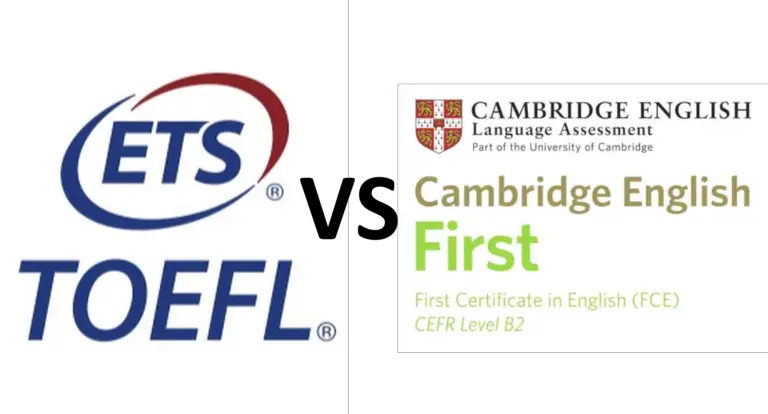Teaching English as a Foreign Language (TEFL) is one of the most exciting jobs out there. Travelling the world, meeting amazing people, experiencing rich and diverse cultures, all the while making a good wage seems too good to be true. But many people do it, including me.
With English taking its place as the most important global language, there are so many wonderful opportunities waiting for you. But how do you get there?
If you’re thinking of becoming a TEFL teacher, and want to know how to get started, this guide is for you. I’ll walk you through the process right from the basics of deciding whether TEFL is a good option, which TEFL destination to choose, how to get qualified, and advice on getting a great TEFL job.
I’ve divided things into four stages:
- What is TEFL? Is it a good choice for you?
- What do you want from TEFL? Choosing where to go and who to teach
- Getting what you need: certification and other requirements
- Finding your first job and dealing with documents
While this article covers the whole process, I’ve added in links to other posts I’ve written which go into more detail on certain things. Make sure to read them, too!
Also, I won’t be covering anything to do with online TEFL teaching in this guide. This is only for in-person teaching.
So, strap in, because this article is the first step on a wild and wonderful journey!
Stage 1: What is TEFL? Is it a good choice for you?
Teaching English as a Foreign Language (TEFL) is just what it sounds like – you go to a non-English speaking country and teach English to people there. It’s an industry, an experience, and for some people, a long-term career.
Hundreds of thousands of TEFL teachers practice their trade around the world, on nearly every continent, with high demand in East Asia, Latin America and Europe.

Before we go any further, it’s important to clear up the terminology. There are so many acronyms in the field that it can get overwhelming. Here’s a brief explanation of the main terms.
- TEFL – Teaching English as a Foreign Language. Mostly used to refer to teaching in countries where the first language is NOT English.
- TESL – Teaching English as a Second Language. Often used for teaching English to non-native speakers in a country where English IS the first language, for example to immigrants in the UK.
- TESOL – Teaching English to Speakers of Other Languages. Includes both TEFL and TESL. A general, but less widely used, term for teaching the English language in any country.
- EFL/ESL/ESOL – Just like the TEFL/TESL/TESOL counterparts, but they refer to the subject studied rather than the profession of teaching. Students in foreign countries are therefore EFL students.
- TOEFL – An exam which tests students’ English abilities (see my full article for more details).
Unfortunately, not everyone knows the differences between the terms. And somes areas of the world prefer certain acronyms over others, so it can be confusing. I’m going to be using TEFL and EFL throughout this article.
Is TEFL a good choice?
Whether you’re thinking of committing to the long term, or only hoping to spend a year or so abroad, there are plenty of benefits, including:
- Cultural experience
- Opportunities to learn a new language
- Relatively low requirements to get started
- Chances to make long-lasting friends
Some of the downsides of TEFL are:
- Relatively low pay in most places means you can’t save much money
- It’s expensive to move abroad
- Some TEFL employers are a little shady
Most people don’t find it too difficult to become a TEFL teacher. As long as you have a good level of English, can communicate well with people and don’t mind adapting to unfamiliar places, it’s not too hard.
Find out more about how difficult TEFL teaching is by reading my article: Is TEFL Teaching Hard? A guide to whether TEFL is right for you.
What are EFL classes like?
There’s a huge variety of EFL classes. From dynamic lessons with thirty kindergarten kids to serious grammar sessions with business-oriented adults, one teacher’s experience can differ completely from another’s.
What’s common to all of them is they tend to be intense, full of failures and successes, and rely heavily on social interactions.
With children, expect plenty of games, songs, dances, and silliness. Repetition and simplicity are key features, while quiet study is limited to short periods.

In a class with teenagers, things are different. Typically, they have more pressure to succeed in exams, they’re less likely to make fools of themselves, and motivation is scarce. That being said, when they’re on your side, teens can be great fun to teach.
Adults usually have a serious approach to English lessons. Whether they want to get an English qualification for work or just practice their conversation, they’re often the ones in control of the content of the class. They’re mostly calm and quiet compared to younger students.
To get a more detailed look into what EFL (and ESL) classes are like, read my post What Are EFL/ESL Classes Like For Teachers?
Is TEFL legit?
Short answer, yes.
TEFL is an industry, just like standard teaching in public schools. Hundreds of thousands of people around the world get paid well for their services and are very happy doing the job.
That being said, not everything in TEFL is above board. Like in any field, there are individuals and companies looking to take advantage of others.

TEFL teachers are quite often young adults moving to a new country for the first time, so they don’t necessarily know what’s normal there. They’re good targets for exploitation.
But don’t let that put you off. As long as you approach things with a bit of common sense, you’ll be fine. If you do your research and ask trusted people before you commit to anything, you’re unlikely to find yourself in a dodgy situation.
Things to look out for are:
- TEFL course providers without an established reputation
- Any potential employer who refuses to provide information about pay, working hours, and location
- Companies which have existed for less than a year.
I’m not saying all companies that fit into these categories are bad, but they’re warning signs you should definitely take heed of.
To dig deeper into the legitimacy of the TEFL industry, read my article Is TEFL Legit? Guide to trustworthy certificates and jobs.
If you’re looking for legitimate and quality TEFL certificates, I recommend International TEFL and TESOL Training. Click the link for 15% off all courses (I receive compensation, so you’re supporting me, too). Not convinced? Read why I’d choose ITTT over other TEFL course providers.
Stage 2: What do you want from TEFL? Choosing where to go and who to teach
Once you’ve decided TEFL is something you’d like to do, now comes the fun part. Picking a destination.
You may already have somewhere in mind, and that’s fantastic. But you still need to do your research and make sure it’s a realistic option. Some countries are a lot easier to get started in than others.

It depends on what you want from TEFL. While you don’t have to commit to anything right now, it helps to have a rough idea of how long you want to be in the industry for, whether you want to make lots of money or enjoy your life and if you’d rather stick to one spot or bounce around from place to place.
For example, if you want a short, fun year, you should look at Latin America or parts of South East Asia like Indonesia or Thailand. Pay isn’t high, but you don’t need expensive qualifications, and the lifestyle is good.
However, if you want to make TEFL a career, wealthier countries in Asia, like South Korea, or rich arab states in the Middle East might be better for you. They’re harder to get into, and you’ll work longer hours, but the pay is a lot higher.

You should also consider what kind of culture appeals to you. Regardless of pay and job prospects, feeling happy living in a country makes the experience so much greater.
For more guidance on how to pick a country, and some bonus suggestions from me, read my guide, How to Pick the Right TEFL Destination: 5 steps to success.
The next thing you need to consider is what kind of job you want to do. In stage 1, we looked at what EFL classes are like. Teaching little kids is different to teaching teenagers, and classes with adults are another realm completely.
Think about what fits your personality best. Personally, I prefer kids aged 10-16 in private classes, and I enjoy adult lessons, too. But put me with a thirty-strong group of toddlers and I’m running for the hills.
If you’re not sure yet, that’s fine. Quite a lot of jobs have a mixture of classes, so you get a range of experiences.
That brings us to the type of employer you work for. There are a few common options.
- Language academies
- Government-sponsored programs
- Public schools
- Private/International schools
- Private tutoring
Language academies are by far the most widespread and popular. They’re great for TEFL teachers getting into the industry because, for the most part, they don’t require big qualifications or experience. Quite a lot of them offer in-house training when you start. They pay well and are present in all countries.
Government-sponsored programs are fantastic, but there aren’t many of them. The Auxiliares de Conversación progam in Spain, TAPIF in France, EPIK in South Korea and JET in Japan are the main ones.
If you can get on one, they pay well, are stable and trustworthy, and rarely require any experience or qualifications.

Public schools aren’t the best option, in my opinion. In most countries, you’ll need a teaching license from home to even stand a chance, and in the ones where you don’t, wages and conditions are often poor.
Some Asian or Latin American countries might employ you, but expect classes of 50 or more and long working hours. The upside is you get real school experience and connect with lots of students.
Private and international schools are really only an option for teachers with good qualifications and experience. Pay is usually better than language academies, although hours tend to be longer.
Positions are competitive, but if you can get one, it’s a fixed term contract with regular income.
Private tutoring is a wonderful option. In most cases, you can’t do it full time, but you can give a few classes to supplement your income from elsewhere. Hourly rates are usually higher than in any other TEFL job, although you can’t guarantee regular hours.
To go deeper into job opportunities as a TEFL teacher, make sure to read my article What Type of TEFL Teaching is For You? Jobs explained.
Stage 3: Getting what you need: certification and other requirements
Now you’ve got a better idea of where you want to teach and the kind of lessons you’d like to do, it’s time to take stock of what skills and qualifications you already have and figure out what others you need to get.
Bachelor’s degree (in any subject)
If you already have a three-year (or more) bachelor’s degree in any subject, it’s going to be really useful. Lots of countries need one for a visa, so the vast majority of employers have it as an obligatory requirement.
If you don’t have one, don’t panic. You certainly don’t need to invest three years of your life and put yourself in masses of debt just to get started in TEFL. However, without a degree, your options are a lot more limited.
There are still plenty of places where you can get employed without a degree, particularly Latin America and parts of Europe.
For the full story on bachelor’s degrees in TEFL, read my article Do You Need a Degree to Work as a TEFL Teacher?
Experience and native English
Having a bit of teaching experience (that includes tutoring and sports coaching) is a nice bonus because it’ll make you a little more competitive when applying for jobs. But it’s not necessary. There are plenty of entry-level jobs which don’t require any teaching background at all.
Being a native English speaker has a big impact. In fact, in some countries it can be difficult to get a good job if you aren’t a native English speaker. It seems unfair, but it’s the reality of the job market.
Like the situation with bachelor’s degrees, if you aren’t a native English speaker, you can still get employed. Just know you’ll struggle against similarly qualified natives.
TEFL Certificates
You will need one of these. While you can get employed in some places without one, you’re venturing into the realm of low pay and potentially shady practices. The exception to this is government-sponsored programs which may not require a TEFL certificate and are as legit as they come.
Most people will need at least a Level 3 120-hour TEFL certificate. This is the minimum for almost all countries and employers. Anything less than 120-hours isn’t worth getting.
If you’re opting for the short-term, lifestyle-focused path, this is all you’ll need. It’s the cheapest and most time-efficient option (in the region of $300 for the course which you can do in your own time online).
However, if you want higher-paid jobs in places like the Middle East and certain European countries, or even just to be more competitive wherever you go, you might consider getting a Level 5 TEFL, or a CELTA.

The Level 5 TEFL is a 168+ hour course. It goes into more detail than the Level 3 version and offers slightly better job opportunities. However, there’s still some debate over whether it’s really that much better than the 120-hour course because the pay increase you’ll get is minimal.
A CELTA, on the other hand, is the cream of the crop. It’s considered the most prestigious and widely recognised TEFL certificate, but it’s pricey ($1,500 plus) and will take you longer to complete. Intense in-person courses last a month, while there’s now an option to do it online, which takes 2-12 months.
You need a CELTA to work for the British Council, a highly respected language academy worldwide. It’s difficult to get employed without one in certain European countries, like France. In other nations, it opens up higher-paid jobs, including some private schools.
To fully explore the types of TEFL certificate available to you, read my article What is the Best TEFL Certificate? Guide to choosing right. And if you can’t decide between a standard TEFL certificate and a CELTA, read TEFL vs. CELTA: What’s the difference? Which is best?
Getting your TEFL certificate
When you’ve decided which type of TEFL certificate you need, the next step is to purchase it and complete it.
You can do the course exclusively online, in-person at a training centre, or a combination of the two.
I like the combination option because it allows flexibility in the theoretical part, but still allows you to complete some real observed teaching practice.
I highly recommend International TEFL and TESOL Training as a course provider. They have options for combined courses as well as fully in-person or online. One of the key things they provide is teaching practice with real students. This is so vital in gaining confidence, and few other courses have this.
If you click the link, you’ll get 15% off all courses. I receive compensation for this, so you’re supporting me, too.
Although it’s a paid link, I could have got the same deal with plenty of other course providers, but I chose ITTT for its variety of options and quality instruction. Not convinced? Read why I’d choose ITTT over other TEFL course providers.
Going through the course itself isn’t too much of a challenge if you have a good grasp of English. There are usually some grammar modules, the basics of teaching, multiple choice quizzes and a final exam.

The majority of people will pass the course. The ones who don’t are those who aren’t committed and give up before finishing. If you do it full time, you can get a 120-hour course done in a month or less.
For guidance on how to best approach the TEFL course, read 10 Steps to Passing Your TEFL: Study and assignment tips. To find out what exams and coursework you’ll have to do, read Is There an Exam for TEFL Courses? What you need to pass.
Stage 4: Finding your first job and dealing with documents
Getting a job
You’ve picked a destination and got your TEFL certificate, so now it’s time to find your first TEFL job. Don’t worry, it’s not as scary as it may first seem.
The truth is, it’s relatively easy to get a TEFL job, although this will depend on where you’re applying and what kind of job you’re going for.
Getting a position in a world-famous International School in Paris is very hard. A language academy role in Ho Chi Minh City is a lot easier.

There are two reasons why getting an entry-level TEFL job is easy:
- More and more people in the world want to learn English, and there aren’t enough English teachers to keep up with demand.
- Many TEFL teachers only spend a year or two in the industry. When they leave, lots of positions become vacant.
Saying all that, getting a good TEFL job takes time and effort. Take the time to research and check the company you’re applying for and make your CV as strong as possible.
Focus on any teaching experience you have and your skills in communication and organisation.
For some locations, applying in-person is your best bet. If you’re committed to a certain destination, you may have to move there and spend the first month applying for jobs in the area. In other places, you can get employed before you arrive. Research which is true for your desired country.
Read my article Is it Hard to Get a TEFL Job? Tips on finding employment for more information and advice on getting the perfect position.
Dealing with documents and other bureaucracy
This is the worst part of moving to a new country. Visas, work permits, residence status and tax are all things which can potentially give you a headache.
I can’t give specific advice, since the situation varies from country to country.
What I can say is that you’ll almost certainly need a working visa to stay for more than 90 days and work legally. To get this, you nearly always need proof of employment.

Visas can take months to process. It’s frustrating, but you have to be patient. Once you’re in the country (or better, before you get there) make it a priority to get your paperwork sorted as soon as possible. Research what’s required and maybe even hire someone to help you out.
For long-term stays, you’ll have to think about your status as a resident in the country for tax purposes. Typically, if you spend over half the year in a country, you’re counted as a tax resident there.
That means you have to pay income tax. Each country has its own regulations, some of which are harsher than others. My advice is to get on top of it, perhaps hiring a tax specialist if you can afford it.

Dealing with bureaucracy in a foreign country is a nightmare. The fines you might get for making a mistake probably outweigh the cost of a specialist advisor.
I’m aware some TEFL practitioners forego this last step and ignore visa rules and tax commitments. While they might save a bit of money working under the radar, this is a terrible idea. Not only is it risky, but it gives the industry a bad name.
Conclusion
There we have it. The big guide to starting out as a TEFL teacher – there’s a lot to take in, right?
This world you’re getting into is a unique opportunity. It’s full of new experiences, personal change, risks and rewards, and memories which will last a lifetime.
Whether you do TEFL for six months or sixty years, it’ll change how you see the world. It’s more than just a job. It’s a challenge.

If you’re still not sure about it, keep reading, and keep researching. I have dozens of articles on this site which cover the basics of getting into the industry, earnings in different countries, and guidance on how to be a great teacher.
And ask people who have done it. Get their opinions on where to go, what to look out for, and how to get the most out of your time in another country.
You’re the one who has to commit. To take a leap of faith into something new and scary which promises so much. To take a first step into a new life.
To learn more about becoming a TEFL teacher, you should definitely read my other articles:
Big Guide to Starting Out in TEFL: All you need to know
Is TEFL Teaching Hard? A guide to whether TEFL is right for you
What Are EFL/ESL Classes Like For Teachers?
Is TEFL Legit? Guide to trustworthy certificates and jobs
Do You Need a Degree to Work as a TEFL Teacher?
How to Pick the Right TEFL Destination: 5 steps to success
What Type of TEFL Teaching is For You? Jobs explained
What is the Best TEFL Certificate? Guide to choosing right
TEFL vs. CELTA: What’s the difference? Which is best?
10 Steps to Passing Your TEFL: Study and assignment tips
Is There an Exam for TEFL Courses? What you need to pass
Which TEFL Course Provider to Choose? Why my pick is ITTT
Is it Hard to Get a TEFL Job? Tips on finding employment









